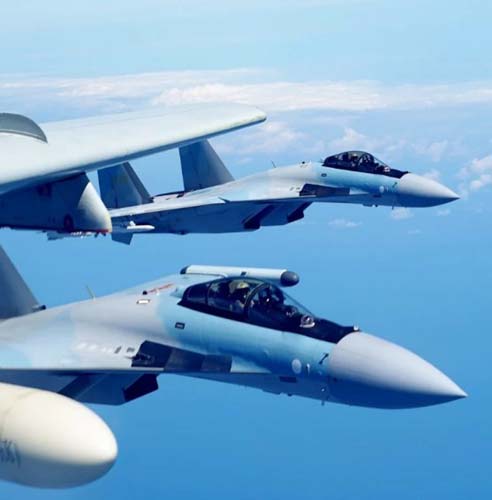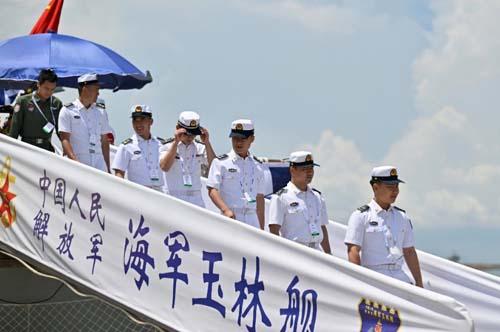
China to join expanded military drills with SE Asian countries
Liu Xuanzun and Guo Yuandan
Beijing: After wrapping up a joint military exercise with Laos, China is planning to conduct a multinational drill with Southeast Asian countries.
Intensive foreign interactions of the Chinese People’s Liberation Army (PLA) serve to boost cooperation, deepen trust and safeguard regional peace and stability, marking a stark contrast to US-led joint military drills that highlight confrontation in the Asia-Pacific region, analysts said on Sunday.

Military delegations from China, Cambodia, Laos, Malaysia, Thailand and Vietnam had an initial planning conference for the Exercise Aman Youyi-2023, meaning “peace and friendship,” in Guangzhou, South China’s Guangdong Province from May 22 to Friday, the PLA Southern Theater Command said in a press release.
Topics including the theme, date, location, preset background and approaches of the exercise were discussed in a frank and friendly atmosphere, with a series of consensuses reached and a meeting minutes signed.

This will not be the first multinational joint exercise organized under the name Aman Youyi, as several editions of the Aman Youyi drills have been carried out since 2014 in the South China Sea, first as China-Malaysia bilateral exercises, then expanded to a China-Malaysia-Thailand trilateral exercise in 2018, and now more countries are looking to join.
The expansion of the Aman Youyi joint exercise has positive and practical significance to the participating countries as well as regional security, Zhuo Hua, an international affairs expert at the School of International Relations and Diplomacy of Beijing Foreign Studies University, told the Global Times on Sunday.
With more ASEAN members participating, the Aman Youyi-2023 exercise will serve as a stabilizer for regional security, as more countries come to understand and agree with China’s views in cooperative, comprehensive and sustainable security, Zhuo said.

The planning conference of the Aman Youyi-2023 multinational joint exercise comes at a time when Chinese and Lao troops wrapped up the Friendship Shield-2023 bilateral joint exercise with a comprehensive joint live-fire phase in a training ground in Laos on Friday.
In the drills, the two countries’ troops formed a joint force and simulated strikes on armed positions in mountainous and forest areas in five phases: reconnaissance, assault, breakthrough, strike and elimination, which enhanced the two militaries’ joint operational capabilities in counterterrorism and the safeguarding of borders, said the PLA Southern Theater Command.

It marked the first time a regiment-level joint command center was established between the two militaries, the first time command linkages were established between the command center and task forces, as well as the first time a joint tactical operation was carried out with the goal of cracking down on cross-national armed criminal groups, China Central Television reported on Saturday.
Recently, China has also conducted joint military drills with Southeast Asian countries including Singapore and Cambodia, and participated in a multinational exercise in Thailand.
Enhancing military cooperation with countries including those in Southeast Asia is an important aspect of China’s military diplomacy, Song Zhongping, a Chinese military expert and TV commentator, told the Global Times on Sunday.
China’s joint drills highlight cooperation and the safeguarding of regional peace and stability, particularly when it comes to non-traditional security threats like terrorism, drug trafficking and piracy, Song said.
On the contrary, the US has been rallying allies in the Asia-Pacific region like the Philippines, Japan and South Korea in holding joint military drills in the traditional security field in attempts to threaten other countries’ sovereignty, security and development interests, sabotaging regional peace and stability in a confrontational manner, Song said.
Under this situation, the joint exercises with China’s participation can counter the negative influence of the zero-sum security view and provide positive energy, experts said.
